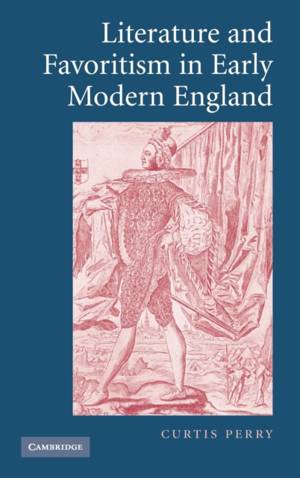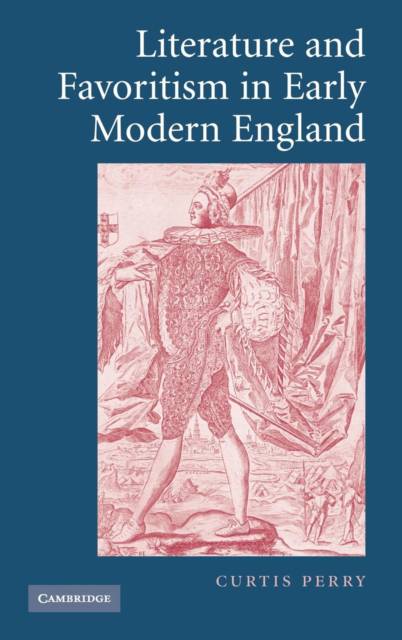
Door een staking bij bpost kan je online bestelling op dit moment iets langer onderweg zijn dan voorzien. Dringend iets nodig? Onze winkels ontvangen jou met open armen!
- Afhalen na 1 uur in een winkel met voorraad
- Gratis thuislevering in België vanaf € 30
- Ruim aanbod met 7 miljoen producten
Door een staking bij bpost kan je online bestelling op dit moment iets langer onderweg zijn dan voorzien. Dringend iets nodig? Onze winkels ontvangen jou met open armen!
- Afhalen na 1 uur in een winkel met voorraad
- Gratis thuislevering in België vanaf € 30
- Ruim aanbod met 7 miljoen producten
Zoeken
€ 172,95
+ 345 punten
Uitvoering
Omschrijving
For writers in the early modern period, thinking about royal favorites inevitably meant thinking about the uneasy intersection of the personal and the public in a political system traditionally organized around patronage and intimacy. Depictions of favoritism - in a variety of texts including plays, poems, libels, and pamphlets - explore the most fundamental ideological questions concerning personal monarchy and the early modern public sphere, questions about the nature and limits of prerogative and about the enfranchisement or otherwise of subjects. In this study, Curtis Perry examines the ideological underpinnings of the heated controversies surrounding powerful royal favorites and the idea of favoritism in the late Elizabethan and early Stuart period. Perry argues that the discourse of corrupt favoritism is this period's most important unofficial vehicle for exploring constitutional unease concerning the nature and limits of personal monarchy within the balanced English constitution.
Specificaties
Betrokkenen
- Auteur(s):
- Uitgeverij:
Inhoud
- Aantal bladzijden:
- 340
- Taal:
- Engels
Eigenschappen
- Productcode (EAN):
- 9780521854054
- Verschijningsdatum:
- 20/03/2006
- Uitvoering:
- Hardcover
- Formaat:
- Genaaid
- Afmetingen:
- 161 mm x 229 mm
- Gewicht:
- 680 g

Alleen bij Standaard Boekhandel
+ 345 punten op je klantenkaart van Standaard Boekhandel
Beoordelingen
We publiceren alleen reviews die voldoen aan de voorwaarden voor reviews. Bekijk onze voorwaarden voor reviews.











